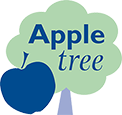Don’t Bother with New Clients
Don’t Bother with New Clients
Many people I meet spend a lot of time chasing new clients in an attempt to grow their businesses. In my opinion, you don’t need to waste time looking for new clients. There are better ways to grow your business.
At the start of this year, we put together a new Business Plan at Appletree. It’s a simple plan for 2014 and the start of 2015, divided into to five parts.
 Part One is called Stabilisation. This is about really focusing on the clients we have and making sure that they’re getting from us what they expect. It’s about taking the time to talk to them on a regular basis, to ensure they receive real value from us and get the results they want. So for the first three months of 2014, we’re spending time meeting with our clients, or speaking to them on the phone on a regular basis. This allows us to keep projects on track and iron out any problems that might have arisen. It means we can find out if our clients are really happy with our services and how to make them better.
Part One is called Stabilisation. This is about really focusing on the clients we have and making sure that they’re getting from us what they expect. It’s about taking the time to talk to them on a regular basis, to ensure they receive real value from us and get the results they want. So for the first three months of 2014, we’re spending time meeting with our clients, or speaking to them on the phone on a regular basis. This allows us to keep projects on track and iron out any problems that might have arisen. It means we can find out if our clients are really happy with our services and how to make them better.
So how does stabilisation help you grow your business? Well, if you don’t ask your clients if they’re happy, they won’t tell you. Just because they don’t say anything or make any complaints does not mean that they’re happy. If they’re not, they’re more likely to just leave, rather than complain. So take the time to talk to them. Find out what they really want and what they actually think of what you’re doing for them. When you can meet their expectations and show them how much you care about them, you can build a loyal base of clients who will stay with you for the long run.
Part Two is called Recalibration. At Appletree we’re really good at providing marketing copy for our clients. Newsletters, blogs, social media material, website content, articles … and all on a regular daily, weekly and monthly basis. However, sometimes we get distracted. We’ve wandered off at tangents to take on other projects that sounded like fun, or that new clients asked us to help with. But have you ever noticed that when you do something that you’re not really great at, you don’t do such a great job?
This part of the Business Plan is about getting back to what we’re best at, so at the start of 2014 we had some difficult conversations. It involved talking to some clients for whom we’d lost focus. We gave them two options – either we change what we were doing for them, to provide them with a content focused service; or we let them go. Some stayed and were more than happy to take our advice on the work we should be doing for them. Others left and that was fine, because it meant that we could put more energy into the clients who were staying.
How can recalibration help your business to grow? When you focus on what you’re best at and what you’re known for, you’ll do a much better job for your clients. When you do, you’ll be able to build stronger relationships with them, to keep them for longer. And when you do a great job, your clients are much more likely to recommend you to new clients, without you even having to go out and look for them!
PS I’ll tell you more about parts three to five in another blog.




